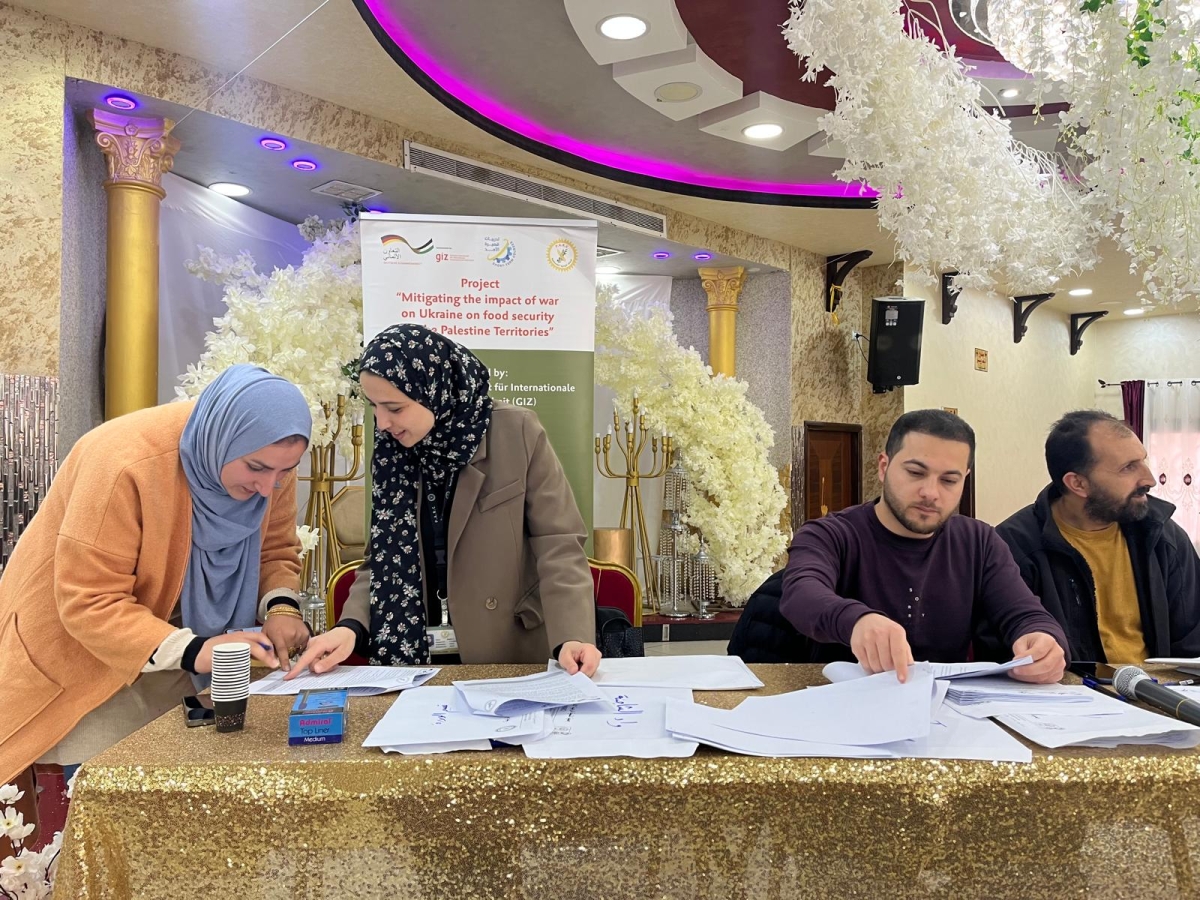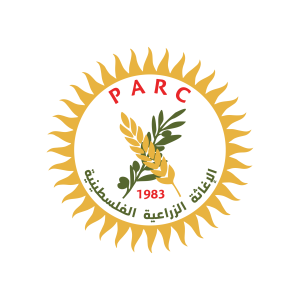PARC Signs beneficiaries Agreements in Emresh Village
2024-05-07
date_range
PARC represented by its General Director Mr. Monjed Abu Jeish, signed a beneficiary agreement regarding food bank with Emresh Village Council and another beneficiary agreements with rural households and small scalefarmers and breeders in the villages of Emresh, Rabood, Karmeh, Wadi Al-Shajneh, and Haddab Al-Fawwar, as part of the 'Food Security Enhancement Project in Palestine as part of the initiative to mitigate the effects of the Ukrainian war,' funded by the German Ministry of Economic Cooperation and Development BMZ through GIZ Palestine.
The head of Emresh Village Council, Mr. Sami Al-Sharawi, inaugurated the event by welcoming PARC and appreciating its efforts in supporting farmers and the agriculture sector in Palestine. He continued welcoming the beneficiaries and praised their commitment to the project and their active participation in the training sessions. He also touched on the idea of the Food Bank and called on families and farmers to contribute to the success of this idea, which will benefit and enhance food security at the community level in the village and neighboring villages. It is worth mentioning that PARC has contributed to rehabilitating and equipping the place with the necessary supplies and equipment to preserve the surplus of farmers and their agricultural contributions and distribute them to needy families through volunteers.
On his part, the General Director of PARC, Mr. Monjed Abu Jeish, expressed his happiness with working in Hebron Governorate, especially in the rural areas of Dura, and emphasized the importance of the project in increasing food security at the individual level for families and farmers through grants that will be provided to them, and at the community level through the experience of the Food Bank. He emphasized the importance of sufficient effort by the beneficiaries to succeed in their agricultural projects and to supply the Food Bank with agricultural products as part of their social responsibility.
The project aims to enhance food security for rural families and small farmers through a series of short-term training sessions to build the capacities of the target groups and provide them with production inputs to increase the production of existing projects for farmers and breeders, and to establish new projects for self-sufficiency and income generation for rural families in the fields of plant production, animal production, and food processing. The project will benefit 150 individuals from small farmers and rural families in 9 locations in the governorates of Hebron and Bethlehem

